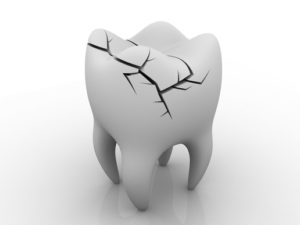20 Mar Teeth Grinding: More than just a bad habit, it’s a dental concern
 Do you clench or grind your teeth when you are stressed? Do you wake up with jaw or facial pain? The act of clenching and grinding teeth is known as bruxism and it can have disastrous affects on oral health. Bruxism normally begins as a response to life’s stressors but over time, it becomes a habit and many people are unaware that they are clenching or grinding their teeth. Bruxism leads to tooth damage, tooth wear, and TMJ dysfunction. Fortunately, our oral surgeons can provide treatment for TMJ disorder when orthodontics and restorations are not enough.
Do you clench or grind your teeth when you are stressed? Do you wake up with jaw or facial pain? The act of clenching and grinding teeth is known as bruxism and it can have disastrous affects on oral health. Bruxism normally begins as a response to life’s stressors but over time, it becomes a habit and many people are unaware that they are clenching or grinding their teeth. Bruxism leads to tooth damage, tooth wear, and TMJ dysfunction. Fortunately, our oral surgeons can provide treatment for TMJ disorder when orthodontics and restorations are not enough.
How Bruxism Affects Oral Health
Teeth are surrounded by a protective barrier called tooth enamel – A layer that coats teeth and is made up of strong minerals that protects the interior structures of teeth from bacteria and acid. When patients grind or clench their teeth, they will weaken their tooth enamel over time. As tiny cracks in enamel are formed by bruxism, the dentin becomes exposed. Dentin is a weaker structure that can chip very easily. Exposed dentin means that teeth will eventually become worn down—especially the molars. Worn down teeth are very susceptible to cracking, fracture, and decay.
On top of worn down teeth becoming damaged or diseased, tooth wear also affects a patient’s bite (or occlusion). This means that the upper and lower sets of teeth will not properly line up when the mouth is closed. An improper bite strains the temporomandibular (TMJ) joint and will eventually impair its ability to function. The TMJ connects the lower jawbone to the skull and works with ligaments and facial muscles to move the mouth in a number of positions. When the TMJ is strained, it will produce discomfort and affect a patient’s oral function.
To restore a bite affected by tooth wear, orthodontics and dental restorations such as crowns may be used to align the bite to a healthier position. When these treatments are not adequate, oral surgery may be necessary to repair and correct the position of jawbones and the structures of the TMJ.
For more information or to schedule an examination with our skilled team of oral surgeon, contact Great River Oral and Maxillofacial Surgery today.


